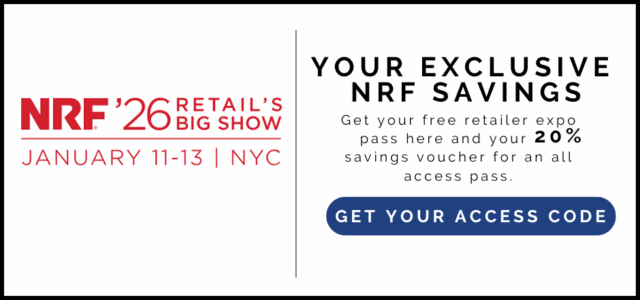What to consider as you execute your Strategic Sourcing Plan
By Dave Wargo, Partner, Columbus Consulting

With the onset of variable tariffs, retailers need to be nimble and strategic in how and from where they source their products. Moving or adding production capabilities, if possible, has risks, as tariffs may change quickly and dramatically, limiting the effectiveness of these moves. Ideally, with consideration to factory talent, abilities, and demand, a retailer sourcing their own goods will have more than once source for production and can flex that production based on capacity, desired quality, and tariffs.
The ability to do this relies more on just the strategy, will, and business execution–your data must be reliable and accurate to permit execution of a strategic sourcing plan.
The following areas of focus and discipline should be assessed and enabled to ensure dual/multi-sourcing success:
- Product Data Model and Product Information Management
- Unification and standardization of product data across all suppliers
- Ability to support alternate vendors and a multi-source tree for each SKU
- Ability to accommodate variable attributes stemming from different BOMs (bill of materials)
- Support accurate product taxonomy across all business units
- Categorize material and blended materials and ensure accurate capture by SKU
- Support SKU-level granularity with country-of-origin, accurate tariff classification, and HTS code tagging
- Accommodate real-time updates and version control
- Anchor a parent/child relationship for multi-sourced SKUs for analysis and demand planning
- Ensure accurate channel data syndication with child SKU variant details (e.g., country of origin)
- Supplier and Vendor Data Model and Data Management
- Enable a standard supplier/vendor master data model
- Manage vendor capabilities, lead times, capacity, and MOQs (minimum order quantities), and lead times
- Capture sales terms (DDP, FOB, etc.)
- Capture and managed fully loaded costs (with shipping, duties, etc.) by SKU with roll-up comparisons
- Monitor and capture vendor and production compliance documentation (certifications, testing, etc.)
- Data Governance and Data Quality Controls
- Assign Data Governance ownership within the organization
- Establish master data governance policies for the product and vendor/supplier domain
- Enable Data Management solutions (e.g., MDM or PIM) with automated data validation rules where possible
- Complete cycled audits of vendors and product records to ensure accuracy
- Ensure product data management solutions are linked to tariff code databases (or other customs databases)
- Set regular checks for tariff changes or new trade restrictions
SUMMARY
Like everything else, cross-functional integration is critical to retailer success. As brands look to diversify their sourcing, it is imperative that they consider the data alignment and consistency established across partners. Your strategic sourcing plans should address where and how data is needed and used, particularly when multiple entities are involved. Defining standard models and establishing both a governance and a control/checks and balance system upfront will ensure success and better enable your organization to maintain a single source of truth and a transparent supply chain.
Learn more about Columbus Consulting’s data and analytics services: HTTPS://WWW.COLUMBUSCONSULTING.COM/SERVICE-SPOTLIGHT-DATA-ANALYTICS/
ABOUT DAVE WARGO
DAVE WARGO is a partner at Columbus Consulting. He is a data-led functional architect, bridging the gap between business and technology to empower data as an asset. He applies tactical retail use-case driven approaches to create processes, standards, and disciplines to enable AL/ML and harden analytics, insights, operations, and optimal customer experiences. Dave is experienced in luxury, quick service restaurants, core retail, convenience, and curated museum merchandising. He has held both retail leadership and consulting delivery roles in data standardization, process overhaul and improvement, retail change implementation, product development, product assortment planning, brand planning, demand planning, and buying.
ABOUT COLUMBUS CONSULTING
Columbus Consulting delivers solutions that drive true value and have been transforming the retail, grocery and CPG industries for over two decades. We are a retail consulting company of industry experts. Our approach is simple, if you do it, we do it. We are more than consultants; we are experienced practitioners who actually sat in our clients’ seats. We understand the challenges, know what questions to ask and deliver the right solutions. Columbus offers a unique, consumer-centric approach with an end-to-end perspective that bridges functional & organization silos from strategy to execution. Our specialties include: unified commerce, merchandising & category management, planning & inventory management, sourcing & supply chain, data & analytics, accounting, finance & operations, people & organization and information technology. Let us know how we can help you. To learn more, visit COLUMBUSCONSULTING.COM.

